PRESTO Community/Scientific Advisory Board – 2023-2025 Term
We are proud to introduce our first PRESTO Community/Scientific Advisory Board which convened in January 2023. The advisory board is tasked with guiding the scientific directions of the study. Their insight will help lead PRESTO to examine highly relevant research questions, maximize public health impact, and advance health equity.
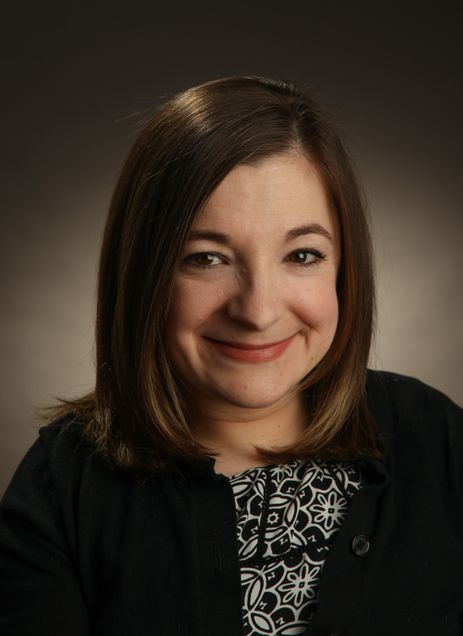 Kara Ayers, PhD, is the Associate Director and an Associate Professor at the University of Cincinnati Center for Excellence in Developmental Disabilities (UCCEDD). She is Director of the Center for Disability, Equity, and Intersectionality and also a co-founder of the Disabled Parenting Project. She is a co-investigator for the National Research Center for Parents with Disabilities and the National Center for Disability and Pregnancy Research. Dr. Ayers’ interests include disability identity/culture, bioethics, community inclusion, and the use of media to teach, empower, and reduce stigma. She serves on multiple task forces and national and state coalitions related to improving outcomes for people with disabilities and infuses the mantra, “Nothing about us without us,” into all of her scholarly and community-based pursuits.
Kara Ayers, PhD, is the Associate Director and an Associate Professor at the University of Cincinnati Center for Excellence in Developmental Disabilities (UCCEDD). She is Director of the Center for Disability, Equity, and Intersectionality and also a co-founder of the Disabled Parenting Project. She is a co-investigator for the National Research Center for Parents with Disabilities and the National Center for Disability and Pregnancy Research. Dr. Ayers’ interests include disability identity/culture, bioethics, community inclusion, and the use of media to teach, empower, and reduce stigma. She serves on multiple task forces and national and state coalitions related to improving outcomes for people with disabilities and infuses the mantra, “Nothing about us without us,” into all of her scholarly and community-based pursuits.
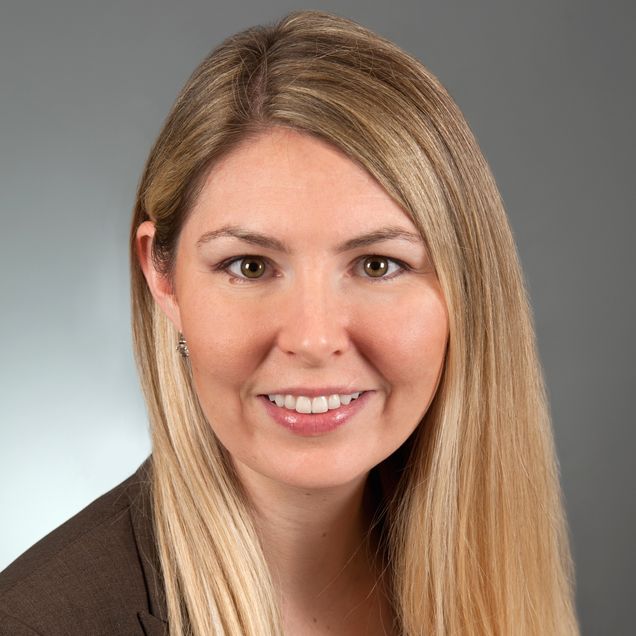 Dr. Brittany Charlton is an Associate Professor at Harvard Medical School and Harvard Pilgrim Health Care Institute in the Department of Population Medicine and at the Harvard T.H. Chan School of Public Health in the Department of Epidemiology. She is also the Co-Director of the Harvard SOGIE (Sexual Orientation and Gender Identity and Expression) Health Equity Research Collaborative and Adjunct Faculty at The Fenway Institute.
Dr. Brittany Charlton is an Associate Professor at Harvard Medical School and Harvard Pilgrim Health Care Institute in the Department of Population Medicine and at the Harvard T.H. Chan School of Public Health in the Department of Epidemiology. She is also the Co-Director of the Harvard SOGIE (Sexual Orientation and Gender Identity and Expression) Health Equity Research Collaborative and Adjunct Faculty at The Fenway Institute.
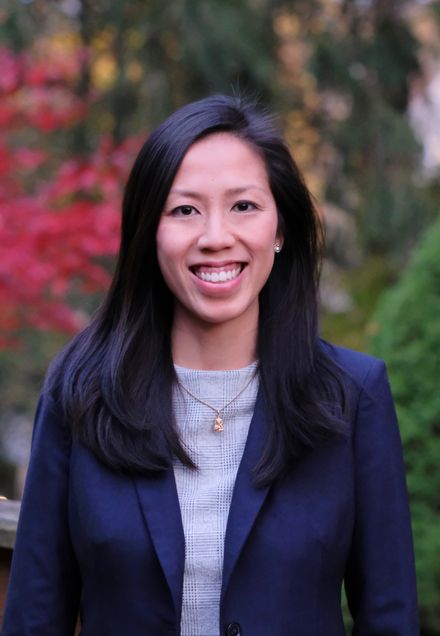 MyDzung T. Chu, PhD, MSPH, is an Assistant Professor in the Departments of Medicine and Public Health and Community Medicine at the Tufts University School of Medicine. She is also the Director of the ADAPT (Addressing Disparities in Asian Populations through Translational Research) Coalition at the Tufts Clinical and Translational Science Institute. As an environmental epidemiologist, she is invested in community-engaged research on social-contextual and environmental determinants of health for Asian and immigrant populations, particularly in the built environment. Her current collaborations with community partners include investigating the association of acculturation and environmental factors on gestational diabetes mellitus for Chinese foreign-born women; evaluating cultural responsiveness of the Mental Health First Aid for Asian populations in Greater Boston; and assessing the impact of administrative burdens in affordable housing access on health. She completed a postdoctoral fellowship at the George Washington University examining the impact of federal housing assistance on residential environmental hazards like lead. Dr. Chu received her PhD in Population Health Sciences from Harvard University, MSPH in Environmental Health and Epidemiology from Emory University, and BA in Neuroscience from Smith College. She is a JPB in Environmental Health Fellow and a former Agents of Change in Environmental Justice Fellow and Gates Millennium Scholar.
MyDzung T. Chu, PhD, MSPH, is an Assistant Professor in the Departments of Medicine and Public Health and Community Medicine at the Tufts University School of Medicine. She is also the Director of the ADAPT (Addressing Disparities in Asian Populations through Translational Research) Coalition at the Tufts Clinical and Translational Science Institute. As an environmental epidemiologist, she is invested in community-engaged research on social-contextual and environmental determinants of health for Asian and immigrant populations, particularly in the built environment. Her current collaborations with community partners include investigating the association of acculturation and environmental factors on gestational diabetes mellitus for Chinese foreign-born women; evaluating cultural responsiveness of the Mental Health First Aid for Asian populations in Greater Boston; and assessing the impact of administrative burdens in affordable housing access on health. She completed a postdoctoral fellowship at the George Washington University examining the impact of federal housing assistance on residential environmental hazards like lead. Dr. Chu received her PhD in Population Health Sciences from Harvard University, MSPH in Environmental Health and Epidemiology from Emory University, and BA in Neuroscience from Smith College. She is a JPB in Environmental Health Fellow and a former Agents of Change in Environmental Justice Fellow and Gates Millennium Scholar.
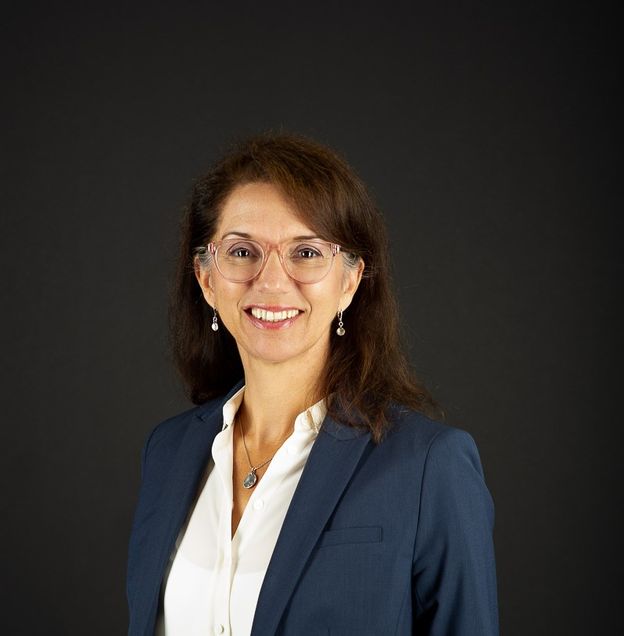 Dr. Deshayne Fell is an Associate Professor in the School of Epidemiology and Public Health at the University of Ottawa, a Scientist in the Children’s Hospital of Eastern Ontario (CHEO) Research Institute, and an Adjunct Scientist at ICES. She earned her BSc in Physical Therapy from the University of Toronto, MSc in Epidemiology from Dalhousie University, and PhD in Epidemiology from McGill University. Dr. Fell has worked in perinatal research, epidemiology, and surveillance in both academic and public health settings. Her research focuses on fetal and infant population health, with particular emphasis on infection and immunization during pregnancy and the relationship with health outcomes in mothers and babies. Dr. Fell is currently leading nationally-funded studies in Ontario, Canada on influenza, pertussis, and COVID-19 vaccination during pregnancy. Since 2014, Dr. Fell has been a member of two World Health Organization working groups related to immunization during pregnancy.
Dr. Deshayne Fell is an Associate Professor in the School of Epidemiology and Public Health at the University of Ottawa, a Scientist in the Children’s Hospital of Eastern Ontario (CHEO) Research Institute, and an Adjunct Scientist at ICES. She earned her BSc in Physical Therapy from the University of Toronto, MSc in Epidemiology from Dalhousie University, and PhD in Epidemiology from McGill University. Dr. Fell has worked in perinatal research, epidemiology, and surveillance in both academic and public health settings. Her research focuses on fetal and infant population health, with particular emphasis on infection and immunization during pregnancy and the relationship with health outcomes in mothers and babies. Dr. Fell is currently leading nationally-funded studies in Ontario, Canada on influenza, pertussis, and COVID-19 vaccination during pregnancy. Since 2014, Dr. Fell has been a member of two World Health Organization working groups related to immunization during pregnancy.
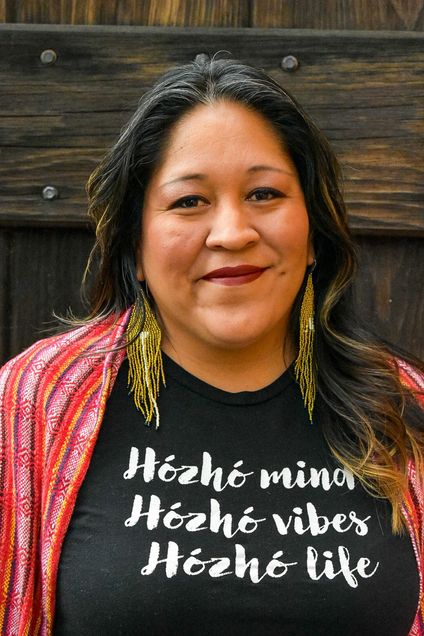 Nicolle Gonzales is a Dine’ Nurse-Midwife from the Navajo Nation, who grew up in the Four Corners of New Mexico and currently resides in Albuquerque, New Mexico. She has a Bachelor’s of Nursing and Master’s in Nurse-Midwifery from the University of New Mexico. She has been a community midwife for over 10 years and a nurse for 17 years. She is also an indigenous feminist, published author, inspirational speaker, grant writer, and free-lance consultant. She has advocated for improving Native American maternal and reproductive health nationally and globally. She is well known as the founder of Changing Woman Initiative, a Native American womens-led organization that has the intention of reclaiming indigenous birthing practices while supporting the return of indigenous midwifery in Native American communities. She believes in the right to health through reclaiming sovereignty of indigenous women’s medicine. In addition to her non-profit and policy work, she uses her experience and expertise as a consultant to help Native American tribes and healthcare organizations address system changes to improve maternal health outcomes in their communities.
Nicolle Gonzales is a Dine’ Nurse-Midwife from the Navajo Nation, who grew up in the Four Corners of New Mexico and currently resides in Albuquerque, New Mexico. She has a Bachelor’s of Nursing and Master’s in Nurse-Midwifery from the University of New Mexico. She has been a community midwife for over 10 years and a nurse for 17 years. She is also an indigenous feminist, published author, inspirational speaker, grant writer, and free-lance consultant. She has advocated for improving Native American maternal and reproductive health nationally and globally. She is well known as the founder of Changing Woman Initiative, a Native American womens-led organization that has the intention of reclaiming indigenous birthing practices while supporting the return of indigenous midwifery in Native American communities. She believes in the right to health through reclaiming sovereignty of indigenous women’s medicine. In addition to her non-profit and policy work, she uses her experience and expertise as a consultant to help Native American tribes and healthcare organizations address system changes to improve maternal health outcomes in their communities.
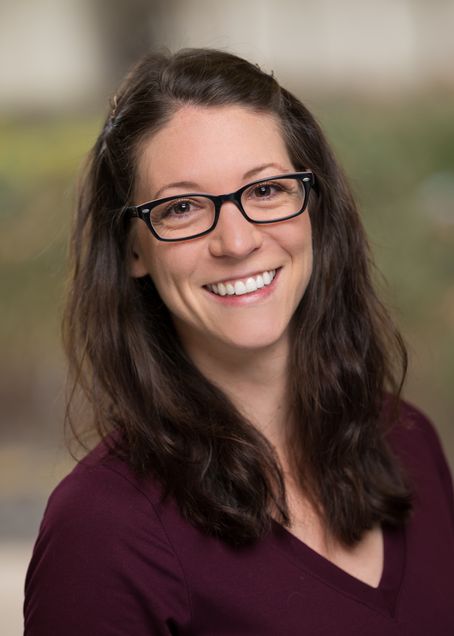 Julia D. Interrante, PhD, MPH, is a Research Fellow in the Division of Health Policy and Management at the University of Minnesota’s School of Public Health and the University of Minnesota Rural Health Research Center. She holds a BA in Gender Studies and International Relations from the University of Virginia, a MPH in Epidemiology from Emory University, and a PhD in Health Services Research from the University of Minnesota. Her prior work as an epidemiologist at the CDC focused on gender disparities, maternal medication use, and disease surveillance and prevention in both the domestic and international context. Her current research examines the effects of reproductive health policies on maternal health outcomes, with specific focus on geographic and racial health equity as well as access to care, and includes topics such as disparities in severe maternal morbidity and mortality, changing access to rural maternity care, and the impact of payment policies on postpartum care.
Julia D. Interrante, PhD, MPH, is a Research Fellow in the Division of Health Policy and Management at the University of Minnesota’s School of Public Health and the University of Minnesota Rural Health Research Center. She holds a BA in Gender Studies and International Relations from the University of Virginia, a MPH in Epidemiology from Emory University, and a PhD in Health Services Research from the University of Minnesota. Her prior work as an epidemiologist at the CDC focused on gender disparities, maternal medication use, and disease surveillance and prevention in both the domestic and international context. Her current research examines the effects of reproductive health policies on maternal health outcomes, with specific focus on geographic and racial health equity as well as access to care, and includes topics such as disparities in severe maternal morbidity and mortality, changing access to rural maternity care, and the impact of payment policies on postpartum care.
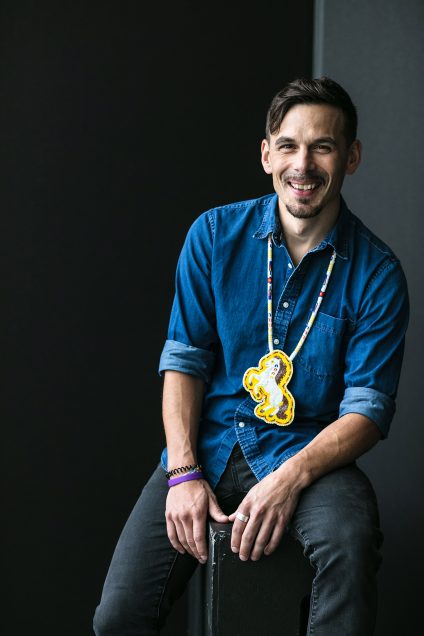 Dr. Richard Oster is the Scientific Director of the Indigenous Wellness Core of Alberta Health Services, based out of Edmonton, Alberta, Canada. Richard is also an Adjunct Assistant Professor in the Department of Agricultural, Food & Nutritional Sciences (University of Alberta) and in the Department of Community Health Sciences (University of Calgary.). His research takes a strengths-based and partnership approach, building specifically on Indigenous ways of knowing and the resilience and strength within communities, as opposed to using a deficit-focused western lens which tends to dominate the field.
Dr. Richard Oster is the Scientific Director of the Indigenous Wellness Core of Alberta Health Services, based out of Edmonton, Alberta, Canada. Richard is also an Adjunct Assistant Professor in the Department of Agricultural, Food & Nutritional Sciences (University of Alberta) and in the Department of Community Health Sciences (University of Calgary.). His research takes a strengths-based and partnership approach, building specifically on Indigenous ways of knowing and the resilience and strength within communities, as opposed to using a deficit-focused western lens which tends to dominate the field.
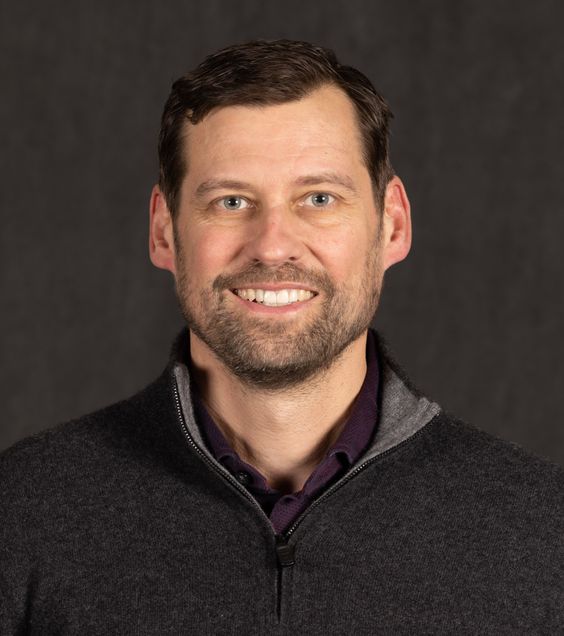 Richard Pilsner, PhD, MPH, is Professor, Robert J. Sokol, MD Endowed Chair of Molecular Obstetrics and Gynecology and Associate Director of the C.S. Mott Center for Human Growth and Development in the Department of Obstetrics and Gynecology in the School of Medicine at Wayne State University, where he also holds a joint appointment with the Institute of Environmental Health Sciences. The Pilsner lab addresses the interface of environmental epidemiology, toxicology, and reproductive health with a particular emphasis on epigenetic mechanisms and biomarker development. Specifically, our research provides a paternal perspective by delineating the role of sperm epigenetics as a pathway linking paternal preconception environmental exposures to reproductive and offspring health. Such research is critical to understand the paternal environmental determinants of reproductive health, early-life development and future health of offspring.
Richard Pilsner, PhD, MPH, is Professor, Robert J. Sokol, MD Endowed Chair of Molecular Obstetrics and Gynecology and Associate Director of the C.S. Mott Center for Human Growth and Development in the Department of Obstetrics and Gynecology in the School of Medicine at Wayne State University, where he also holds a joint appointment with the Institute of Environmental Health Sciences. The Pilsner lab addresses the interface of environmental epidemiology, toxicology, and reproductive health with a particular emphasis on epigenetic mechanisms and biomarker development. Specifically, our research provides a paternal perspective by delineating the role of sperm epigenetics as a pathway linking paternal preconception environmental exposures to reproductive and offspring health. Such research is critical to understand the paternal environmental determinants of reproductive health, early-life development and future health of offspring.
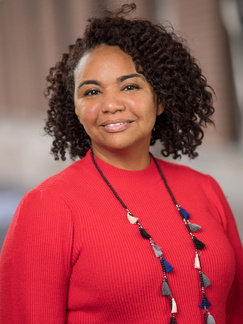 Dr. Slaughter-Acey, PhD, is an Associate Professor at the University of Minnesota School of Public Health. She received Ph.D. in maternal and child health epidemiology from the University of Illinois at Chicago and completed a NIH T32 postdoctoral fellowship in perinatal and social epidemiology at Michigan State University. Broadly, her teaching, research, and service focus on the socio-environmental and psychosocial determinants of women’s and family health, with emphasis on health equity. A major focal area of Dr. Slaughter-Acey’s research is the study of structural, cultural, and intergenerational racism and how systemic racism impacts women’s health before, during, and after pregnancy. She was honored as NIH Office of Behavioral and Social Science Research as a Matilda White Riley ESI Awardee for her research establishing skin shade discrimination as a social determinant of prenatal care.
Dr. Slaughter-Acey, PhD, is an Associate Professor at the University of Minnesota School of Public Health. She received Ph.D. in maternal and child health epidemiology from the University of Illinois at Chicago and completed a NIH T32 postdoctoral fellowship in perinatal and social epidemiology at Michigan State University. Broadly, her teaching, research, and service focus on the socio-environmental and psychosocial determinants of women’s and family health, with emphasis on health equity. A major focal area of Dr. Slaughter-Acey’s research is the study of structural, cultural, and intergenerational racism and how systemic racism impacts women’s health before, during, and after pregnancy. She was honored as NIH Office of Behavioral and Social Science Research as a Matilda White Riley ESI Awardee for her research establishing skin shade discrimination as a social determinant of prenatal care.
 Dr. Bilqis Williams MPH, DF- FIGHR is a medical doctor, global and environmental public health practitioner. Dr. Williams possesses over a decade of experience serving in clinical, research, managerial and crisis resolution roles. She has a track record of success in feminine health, mental health, community and policy development, geospatial analysis, health equity, racial justice, inclusive leadership, human rights activism, immigrant/ refugee and displaced persons health and humanitarian service. Dr. Williams is the creator of the 20% equity rule and has informed diversity and sensitivity policies for Congress candidates in the US. Bilqis has led different interprofessional teams to provide community support systems and advocacy, sustainable energy projects between cities across the world and is a writer of interest in environmental and global health. She also advises independent research institutions on the varying intersections of that influence health outcomes. Dr. Williams is the first ever recipient of the Peace Prize for Community Activism and is listed by the Boston University School of Public Health as one of 20 change makers of our century. Dr. Bilqis Williams currently serves as Federation for International Gender and Human Rights (FIGHR) Mission Ambassador to the Federal Republic of Nigeria.
Dr. Bilqis Williams MPH, DF- FIGHR is a medical doctor, global and environmental public health practitioner. Dr. Williams possesses over a decade of experience serving in clinical, research, managerial and crisis resolution roles. She has a track record of success in feminine health, mental health, community and policy development, geospatial analysis, health equity, racial justice, inclusive leadership, human rights activism, immigrant/ refugee and displaced persons health and humanitarian service. Dr. Williams is the creator of the 20% equity rule and has informed diversity and sensitivity policies for Congress candidates in the US. Bilqis has led different interprofessional teams to provide community support systems and advocacy, sustainable energy projects between cities across the world and is a writer of interest in environmental and global health. She also advises independent research institutions on the varying intersections of that influence health outcomes. Dr. Williams is the first ever recipient of the Peace Prize for Community Activism and is listed by the Boston University School of Public Health as one of 20 change makers of our century. Dr. Bilqis Williams currently serves as Federation for International Gender and Human Rights (FIGHR) Mission Ambassador to the Federal Republic of Nigeria.